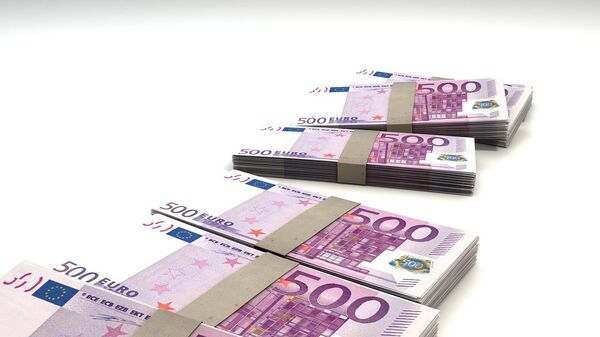Earlier in July, Mr. Johnson said European Union officials could "go whistle" if they expect Britain to pay a substantial sum of money as the bill for the Brexit "divorce."
But Mr. Bettel said Mr. Johnson was just "bragging" to a British audience.
"It is not possible to have your cake and eat it too — Boris Johnson knows that," he said.
"Concerning the exit bill, it is important to underline that the British Government took this commitment in the past and needs to honor it. It is not a penalty. The sum ranges between £36bn (US$47 billion) and £54bn (US$70 billion)," he added.
We should pay what is legally required and if that figure is nothing, then nothing is what we should pay!
— David Jordan (@davidrjordan1) July 30, 2017
Mr. Bettel also referred back to 1984, when Margaret Thatcher managed to negotiate a sizable rebate from the EU, which currently equates to about £5 billion (US$6.5 billion).
"It is now time for the European Union to make an analogy with the famous quote of Mrs. Thatcher, 'We want our money back,' " said Mr. Bettel.
Dr. Oliver Daddow, Assistant Professor in British politics at the University of Nottingham, said the final bill was crucial to the Brexit negotiations.
"The problem is that until they have sorted this out, the noises from the EU are that they can't then get on to the real nitty-gritty, which is the key stuff around the future nature of the relationship," Dr. Daddow told Sputnik.
"So all the time the UK is stalling on developing a coherent response on its financial obligations, and on EU citizens' rights, it is not going to get to the real nitty-gritty, which is what divided the Conservative Party," he added.
The comments from Luxembourg's prime minister come after the second round of Brexit talks between David Davis, the Brexit Secretary, and Michel Barnier, the EU's chief negotiator, failed to break the deadlock.
Our 🇨🇦friends are always reliable partners @JustinTrudeau. XB pic.twitter.com/7bvLBXDwjD
— Xavier Bettel (@Xavier_Bettel) 29 July 2017
Dr. Daddow said many British politicians seemed to be oblivious to the fact that Britain was not in a strong bargaining position, like it might have been in the 1980s when Mrs. Thatcher was prime minister.
He said comments like Mr. Johnson's "go whistle" remark might play well with British voters, especially supporters of the Leave campaign, but can only antagonize the EU negotiators.
"Mr Johnson has form on this. One of his schticks as a politician is to throw in very short soundbite words which attract attention, but deflect attention from policies. The problem is that it appeals to the right-wing press in the UK… but what it doesn't do is appease the people we need to appease, who are sat in Brussels, waiting for the UK to come up with a position which so far it is fundamentally failing to do," Dr. Daddow told Sputnik.
"They are not letting us off the hook anymore because we're not a member. Part of the problem is that back in the day Britain could jab away at the EU, and they would just say 'it's just the British being British,' but this is a different kind of environment, and I wonder if our politicians have really grasped the seriousness of all the issues they are dealing with here," he added.
"All the noises you hear from Barnier are that the EU won't consider even discussing the future nature of our relationship with them until this is sorted out. So we could spend a year-and-a-half telling them to 'go whistle,' and then you have to then crash out without a deal and have to go back to WTO rules and regulations [on trade]," Dr. Daddow told Sputnik.



